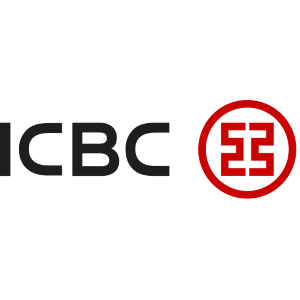

Bank of Nova Scotia
NYSE:BNS

Profitability Summary
Bank of Nova Scotia's profitability score is hidden . We take all the information about a company's profitability (such as its margins, capital efficiency, free cash flow generating ability, and more) and consolidate it into one single number - the profitability score. The higher the profitability score, the more profitable the company is.
Profitability Score
We take all the information about a company's profitability (such as its margins, capital efficiency, free cash flow generating ability, and more) and consolidate it into one single number - the profitability score. The higher the profitability score, the more profitable the company is.
We take all the information about a company's profitability (such as its margins, capital efficiency, free cash flow generating ability, and more) and consolidate it into one single number - the profitability score. The higher the profitability score, the more profitable the company is.
Profitability Score
Margins
Margins Comparison
Bank of Nova Scotia Competitors

| Country | Company | Market Cap | NIM |
Net Margin |
||
|---|---|---|---|---|---|---|
| CA |

|
Bank of Nova Scotia
TSX:BNS
|
130.3B CAD |
Loading...
|
Loading...
|
|
| CA |

|
Royal Bank of Canada
TSX:RY
|
329.7B CAD |
Loading...
|
Loading...
|
|
| CA |

|
Toronto-Dominion Bank
TSX:TD
|
223.3B CAD |
Loading...
|
Loading...
|
|
| CA |

|
Bank of Montreal
TSX:BMO
|
140.7B CAD |
Loading...
|
Loading...
|
|
| CA |

|
Canadian Imperial Bank of Commerce
TSX:CM
|
125.8B CAD |
Loading...
|
Loading...
|
|
| CA |

|
National Bank of Canada
TSX:NA
|
69.6B CAD |
Loading...
|
Loading...
|
|
| US |

|
JPMorgan Chase & Co
NYSE:JPM
|
836B USD |
Loading...
|
Loading...
|
|
| ZA |
C
|
Capitec Bank Holdings Ltd
JSE:CPI
|
550.2B ZAR |
Loading...
|
Loading...
|
|
| ZA |
S
|
Standard Bank Group Ltd
JSE:SBK
|
525.3B ZAR |
Loading...
|
Loading...
|
|
| US |

|
Bank of America Corp
NYSE:BAC
|
382B USD |
Loading...
|
Loading...
|
|
| CN |

|
Industrial and Commercial Bank of China Ltd
SSE:601398
|
2.5T CNY |
Loading...
|
Loading...
|
Return on Capital
Return on Capital Comparison
Bank of Nova Scotia Competitors

| Country | Company | Market Cap | ROE | ROA | ||
|---|---|---|---|---|---|---|
| CA |

|
Bank of Nova Scotia
TSX:BNS
|
130.3B CAD |
Loading...
|
Loading...
|
|
| CA |

|
Royal Bank of Canada
TSX:RY
|
329.7B CAD |
Loading...
|
Loading...
|
|
| CA |

|
Toronto-Dominion Bank
TSX:TD
|
223.3B CAD |
Loading...
|
Loading...
|
|
| CA |

|
Bank of Montreal
TSX:BMO
|
140.7B CAD |
Loading...
|
Loading...
|
|
| CA |

|
Canadian Imperial Bank of Commerce
TSX:CM
|
125.8B CAD |
Loading...
|
Loading...
|
|
| CA |

|
National Bank of Canada
TSX:NA
|
69.6B CAD |
Loading...
|
Loading...
|
|
| US |

|
JPMorgan Chase & Co
NYSE:JPM
|
836B USD |
Loading...
|
Loading...
|
|
| ZA |
C
|
Capitec Bank Holdings Ltd
JSE:CPI
|
550.2B ZAR |
Loading...
|
Loading...
|
|
| ZA |
S
|
Standard Bank Group Ltd
JSE:SBK
|
525.3B ZAR |
Loading...
|
Loading...
|
|
| US |

|
Bank of America Corp
NYSE:BAC
|
382B USD |
Loading...
|
Loading...
|
|
| CN |

|
Industrial and Commercial Bank of China Ltd
SSE:601398
|
2.5T CNY |
Loading...
|
Loading...
|

